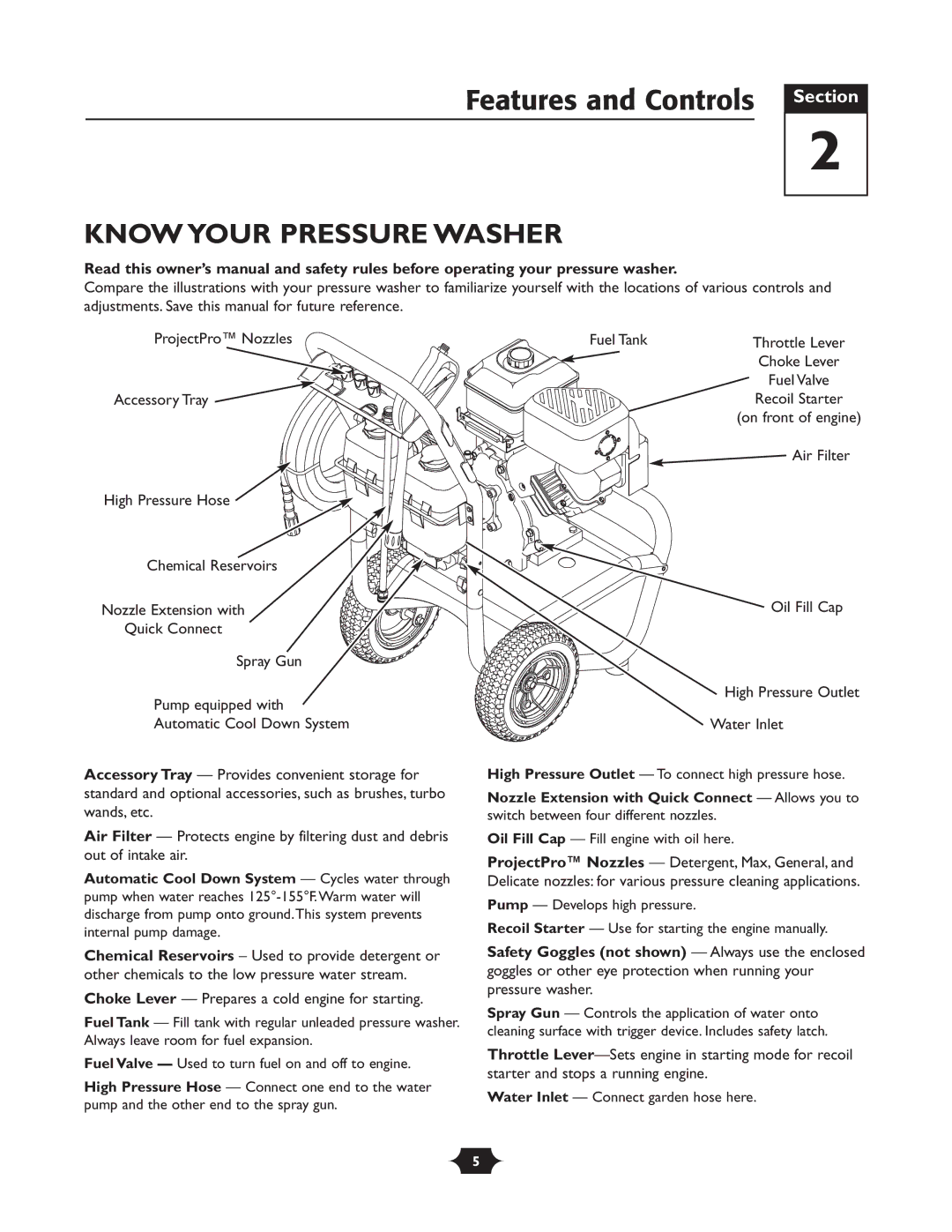
Features and Controls Section
2
KNOW YOUR PRESSURE WASHER
Read this owner’s manual and safety rules before operating your pressure washer.
Compare the illustrations with your pressure washer to familiarize yourself with the locations of various controls and adjustments. Save this manual for future reference.
ProjectPro™ Nozzles
Accessory Tray ![]()
High Pressure Hose ![]()
![]()
Chemical Reservoirs
Nozzle Extension with
Quick Connect
Spray Gun
Pump equipped with
Automatic Cool Down System
Accessory Tray — Provides convenient storage for standard and optional accessories, such as brushes, turbo wands, etc.
Air Filter — Protects engine by filtering dust and debris out of intake air.
Automatic Cool Down System — Cycles water through pump when water reaches
Fuel Tank | Throttle Lever |
| Choke Lever |
| Fuel Valve |
| Recoil Starter |
| (on front of engine) |
| Air Filter |
Oil Fill Cap
High Pressure Outlet
Water Inlet
High Pressure Outlet — To connect high pressure hose.
Nozzle Extension with Quick Connect — Allows you to
switch between four different nozzles.
Oil Fill Cap — Fill engine with oil here.
ProjectPro™ Nozzles — Detergent, Max, General, and Delicate nozzles: for various pressure cleaning applications.
Pump — Develops high pressure.
Recoil Starter — Use for starting the engine manually.
Chemical Reservoirs – Used to provide detergent or other chemicals to the low pressure water stream.
Choke Lever — Prepares a cold engine for starting.
Fuel Tank — Fill tank with regular unleaded pressure washer. Always leave room for fuel expansion.
Fuel Valve — Used to turn fuel on and off to engine.
High Pressure Hose — Connect one end to the water pump and the other end to the spray gun.
Safety Goggles (not shown) — Always use the enclosed
goggles or other eye protection when running your pressure washer.
Spray Gun — Controls the application of water onto cleaning surface with trigger device. Includes safety latch.
Throttle
Water Inlet — Connect garden hose here.
5
